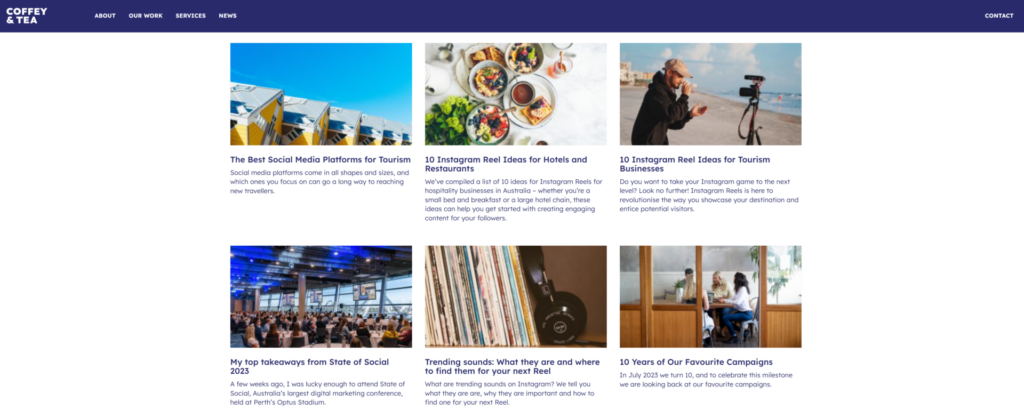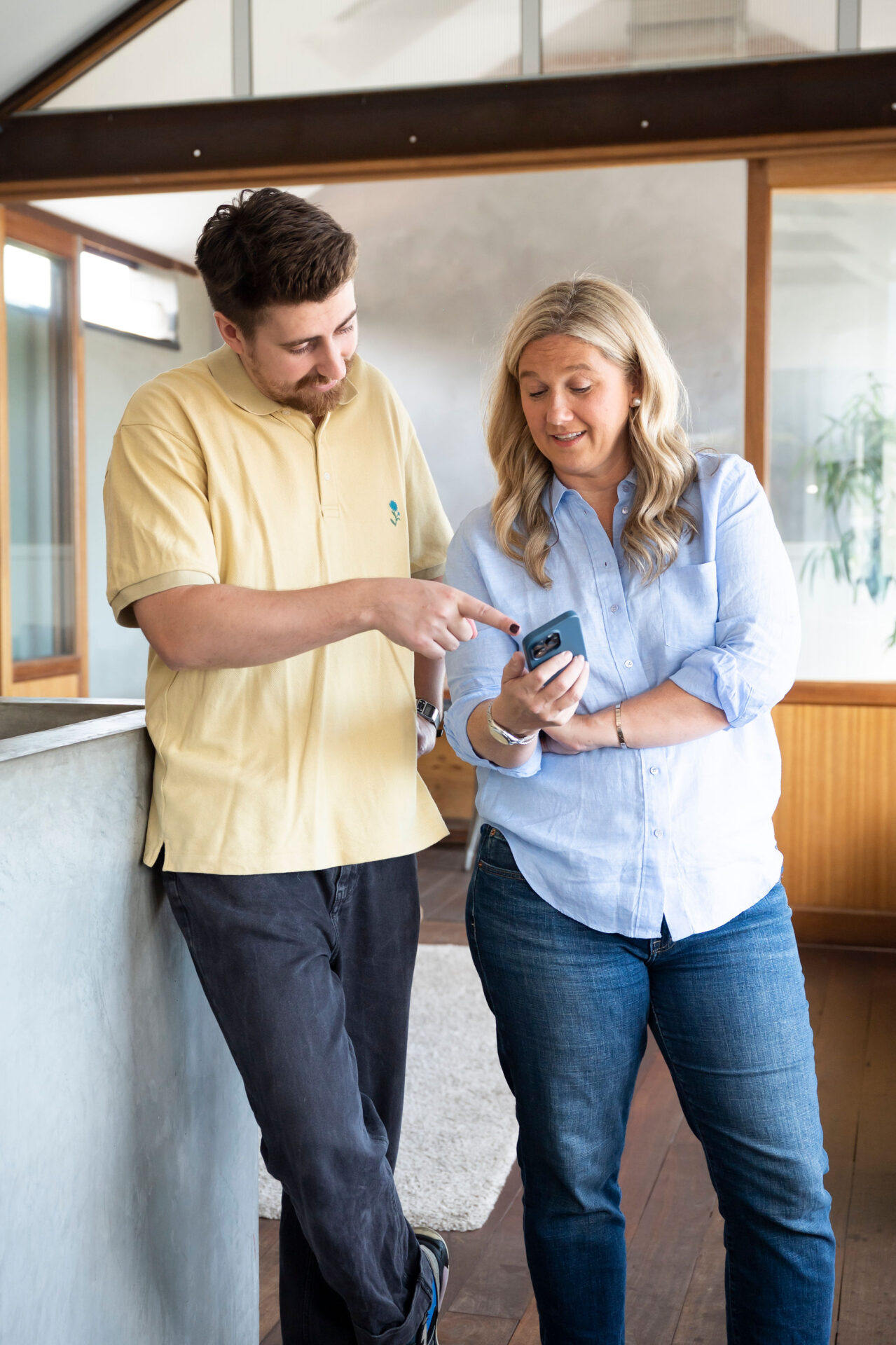You’re a blogger now
Blogging is an important part of your marketing strategy because it helps you be seen by people who actually want to find you.
We all love reading about tourism and hospitality content. Who doesn’t love researching an upcoming holiday, reading about the latest coffee trends or planning a foodie road trip?
When you have a tourism or hospitality business, you are in the perfect industry to get creative with online content and obtain significant results.
So why should you put the time and effort into blogging on your website?
What is a blog?
Before diving into why you should have a blog, we need to understand what a blog is.
Simply put, a blog is a section on your website where you add posts regularly. The beauty of having a blog on your website is that it can be whatever you want. However, it should be relevant to your business and the audience you want to reach.
Here are a few reasons why we love helping our clients with blogging.
Blogging drives traffic to your website
Build it, and they will come. Yeah… that doesn’t quite work when it comes to web traffic.
Websites are expensive! We all know they cost a fair sum to create, and then there’s the ongoing maintenance, hosting and marketing costs. Therefore, you want to ensure you get the most out of it. Unfortunately, just building it doesn’t mean people will come.
Blogging is a great way to keep your website fresh and updated. By creating blog posts, you are creating more touchpoints for your brand. You’ll be able to attract more people from search engines, social media and through your email newsletters.
Tip: Use Google Analytics to see how many people view your blog posts, and if you have goal tracking set up, you can also see how many people read your blog posts and then go on to convert. We find the Life Cycle > Engagement > Pages and screens report great for reviewing the website traffic to our blog posts.
Blogging provides social media and e-newsletter content
Blogging benefits your website strategy and your entire digital marketing strategy. Once you have created a new blog post, you must promote it. You can do this through your social media channels and email newsletters. And just like that, you have fresh content for numerous online channels.

Tip: When sharing your content on social media, don’t forget to use hashtags to attract new eyes to your content. Alongside this, if you mention, quote or link to another brand on social media, why not tag them in your caption when you share the link to your new blog post – they may decide to share it with their audience, too?
Blogging is great for SEO
Blogging is such a robust SEO strategy because Google loves fresh content. Getting good at keyword research is the key to making blogging work well for your SEO strategy. If you are blogging about popular topics people are searching for and writing great, unique content around these topics, you have a winning formula.
Your blog will also help encourage people to stay on your website longer. People will probably want to hang around longer if you have an excellent internal linking strategy and plenty of appealing content. And the longer they stay, the more brand awareness you’re getting.
Additionally, if your content is super helpful, unique and exciting, you may find other websites that will link to you and mention your content. Backlinks (links pointing to your website from other websites) are essential to your SEO strategy. Your backlinks should be as natural as possible and from relevant and quality sources.
Tip: Sometimes, the biggest struggle with blogging is coming up with ideas. Do a brainstorming session with your team and think about topics customers regularly ask about, ask your social media audience what they’d like to read about, try websites like Answer The Public or simply Google a topic and check out what Google lists in the ‘People Also Ask’ and ‘Searches Related to’ sections.
Blogging positions you as an expert in your field
Demonstrating your expertise within your industry through a diverse range of blog topics is a powerful way to establish credibility. When your audience recognises you as an authority in your field, it fosters trust and confidence. Consequently, when the time comes for them to engage your services, make bookings, visit your establishments, or take any other action, the likelihood is high that they will choose your brand. Your continuous efforts in building this trust give them compelling reasons to opt for your offerings.
Tip: Don’t hesitate to utilise a sidebar in your blog section. This space can prominently feature your About page (an essential component for all websites) and showcase any industry awards or recognitions, further solidifying trust in your brand.
Blogging offers short and long-term results
Blogging offers a variety of benefits, spanning both immediate and long-term advantages.
In the short term, it provides you with a wealth of content to swiftly share on social media, in email newsletters, and through various other channels as soon as your post goes live. Your content retains its discoverability in the long run, especially when well-optimised. This enduring visibility is achieved through search engines, internal links within your website, and external links from other websites as long as your content continues to serve the needs of your audience.
Tip: Investing in evergreen content is a smart strategy for reaping the sustained rewards of blogging. Evergreen content remains relevant over time instead of being a one-time occurrence. However, keeping such content up-to-date is crucial, ensuring it remains valuable. For instance, if you’ve created a list of the ‘Top Dog Parks in Perth,’ be sure to update it when new parks open or existing ones close.
It helps you build a community
Blogs help create a sense of community in their own right. Readers with common interests or challenges can connect through your blog’s comments and discussions. This community aspect fosters a deeper connection with your brand and the readers’ sense of belonging.
Tip: Encourage your community to interact with your blog by including solid calls to action and social buttons.
Final thoughts
When done well, blogging can be a profitable marketing strategy for your tourism or hospitality brand. Even for experts, it takes a bit of trial and error to work out what best resonates and holds your audience’s interest. So don’t be shy to try things.
To get your inspiration flowing, here are some West Australian brands that have a solid blogging strategy in plan right now:


